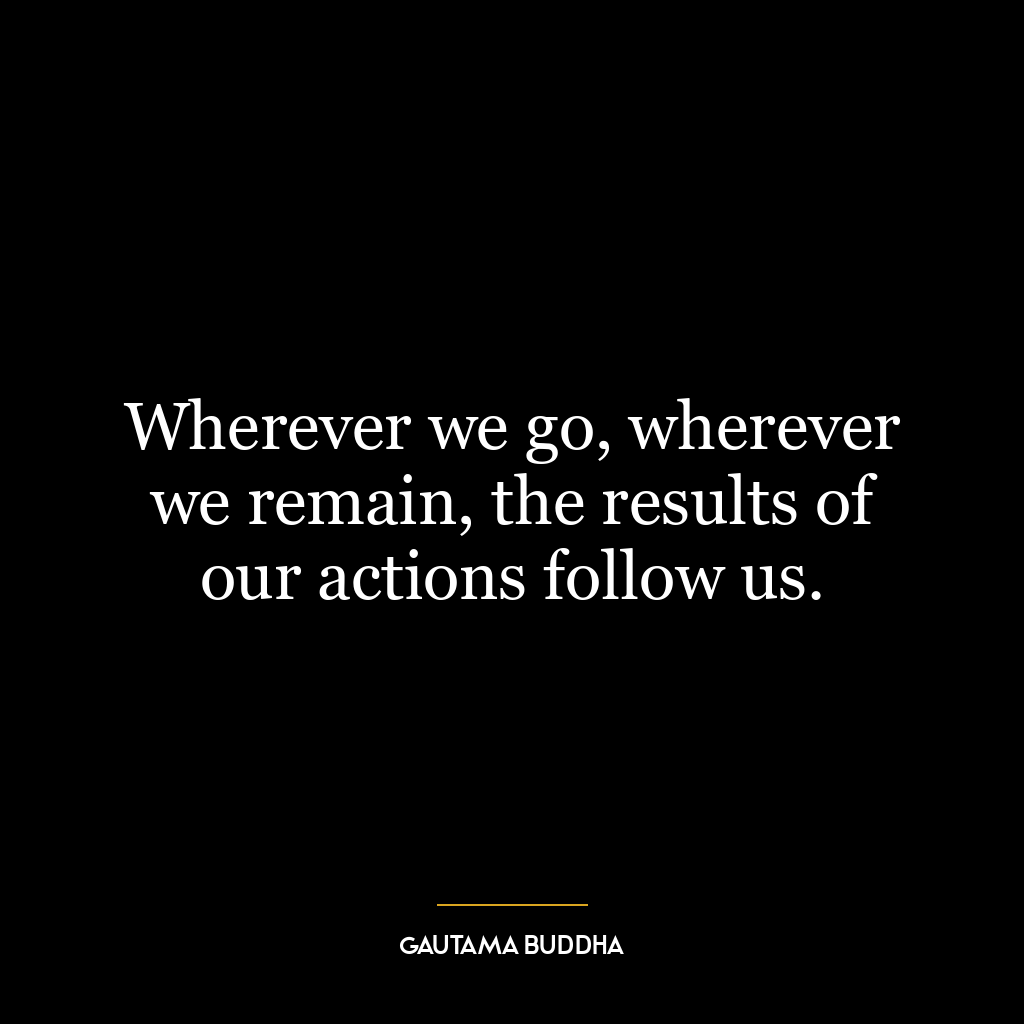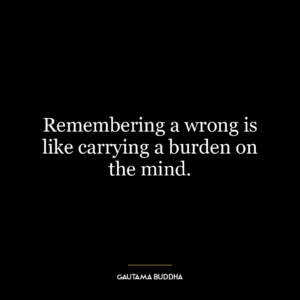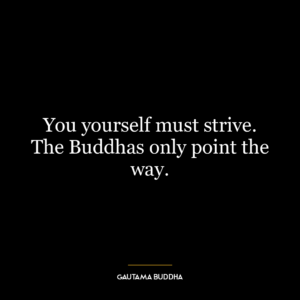This quote essentially communicates the idea of karma, a fundamental concept in Buddhism. Karma refers to the law of cause and effect, which states that every action has a consequence. This means that our past actions shape our present condition and our present actions will shape our future.
“Wherever we go, wherever we remain, the results of our actions follow us,” suggests that no matter where we are or what situation we find ourselves in, we cannot escape the consequences of our deeds. They remain with us like shadows, influencing every aspect of our lives – from relationships and career success to personal happiness and spiritual growth.
In today’s world, this concept still holds significant relevance. It can be seen as a call for accountability and responsibility for one’s actions. In a time where it is easy to shirk responsibility or blame others for one’s circumstances, Buddha’s words remind us that it is within each individual’s power to shape their own destiny through their thoughts, words and deeds.
From a perspective of personal development too this idea is very potent. It encourages self-reflection on how past decisions have shaped current circumstances while also emphasizing that future outcomes are not set in stone but can be influenced by making conscious choices now.
For instance, if someone continuously puts forth negative energy into the world (through anger or malice), they should not be surprised when they face negativity in return. On the other hand if someone consistently acts with kindness and generosity these positive actions will likely yield positive consequences over time – perhaps through reciprocated kindness or simply an overall sense of fulfillment.
Thus Buddha’s quote serves as both an explanation for why things are as they are (based on past action) but also guidance on how things could be (based on present action). It underlines life’s fluidity while highlighting individual agency – making it timeless wisdom applicable across all eras including today’s fast-paced modern world.















